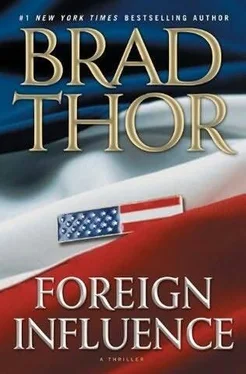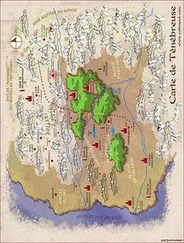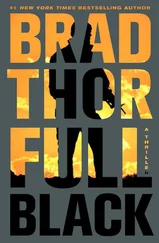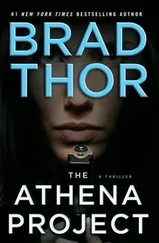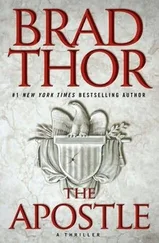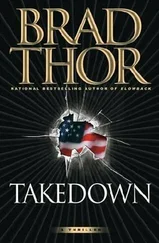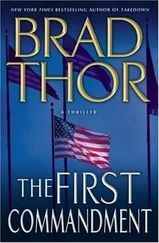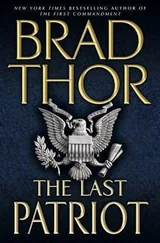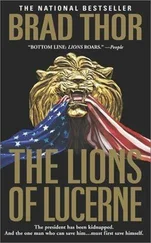“No,” replied Harvath, removing the file from the table. “This is mine.”
Carlton nodded. “We have an apartment in Rome you can use, unless you want to begin in Naples, in which case we’ll arrange something for you there.”
“He’s not in Italy. He’s in Spain.”
“How do you know?”
Harvath had a lot to do. Standing, he picked up his coffee mug and said, “Because he just called me to set up a meeting.”

BILBAO
TUESDAY
After landing in Madrid, Harvath passed through immigration and customs, then took the metro into the city. It was packed with tourists.
Near the boisterous Puerta del Sol, he entered a nondescript building, rode the aging elevator to the fourth floor, and used the key he had been given to gain access to the Carlton Group’s Madrid safe house.
He located the capabilities kit that had been left for him and cataloged its contents. While capabilities kits could be tailored to the specific assignment, as a rule they contained all of the hard-to-acquire items an operative might need in a foreign country.
Kits were Spook 101 and normally included cash, sterile SIM cards, cell phones, lock-picking tools, a condensed trauma kit, tracking bugs, Tuff Ties, a Taser, folding knife, multitool, IR laser designator, infrared strobe, night vision monocular, and a compact weapon with high-end ammunition. In Harvath’s case, the compact weapon was a Glock 19 with two spare magazines of 9mm +P ammunition.
The contents of the kit fit neatly into the 3-Day pack he had brought along with him.
Following a quick shower and shave, he gathered up his belongings and returned to the metro. At Chamartín station, he boarded a train headed north.
Though Carlton could have arranged for the gear to be dead-dropped in Bilbao, Harvath preferred doing it this way. There was no telling who or what would be waiting for him when he arrived. It was a city he didn’t know and didn’t have any allies in. Too much could go wrong. It was better to arrive prepared.
As the high-speed train raced across the Spanish countryside, he closed his eyes. He thought about Tracy and the good-bye call he had placed before leaving. He also thought about the family he was never going to have with her.
Shortly past nine o’clock in the evening, the train arrived at Abando Station. Mixing in with other passengers, Harvath kept his eyes open as he headed toward the escalators beneath the magnificent wall of stained glass at the end of the terminal.
He took the Bilbao metro and got off two stops before his hotel. Moving through the neighborhood, he conducted a series of surveillance detection routes, or SDRs, to make sure he wasn’t being followed. The evening air was cool and carried a hint of rain.
At a small café across from the hotel, Harvath ordered a coffee and watched the ebb and flow of the sidewalk traffic. He studied the cars parked up and down the street and when he was confident that he hadn’t been followed and that the hotel wasn’t under surveillance, he paid his bill, crossed the street, and checked in.
In his room, he changed into a pair of dark jeans and a sweater. He tucked his Glock into a leather holster near the small of his back. He put on a comfortable pair of low-profile hiking boots and a leather jacket with deep pockets.
Exiting the hotel through the service entrance, he struck out for the city’s medieval neighborhood known as the Casco Viejo.
It was a fifteen-minute walk. Most of the restaurants and bars were still empty, save for the few that catered to tourists not yet in sync with the Spanish custom of dining later in the evening.
Oblivious to the cars and the hour, children kicked soccer balls in the street as older people walked small dogs and young mothers pushed babies in cheap strollers.
Bilbao was a featureless city like Milan, but with a Spanish twist. Bland buildings roofed in red tiles were wedged cheek-by-jowl, fronted by concrete sidewalks. There were very few trees and even less grass. Every single inch of space that could be used, had been used.
Nearer the old town the streets narrowed and the architecture became more interesting. Harvath removed a map he had picked up in the hotel lobby and studied it as he walked. He strolled up and down the Siete Calles, or seven streets as they were known, and got a feel for the neighborhood. It was full of shops, bars, and restaurants.
Behind the cathedral in the Calle de la Tendería he found a Basque restaurant within sight of the street’s only tobacconist. He took a seat inside, two tables back from the window, withdrew a guidebook from his pocket, and made himself comfortable.
Over the next three hours, he pretended to linger over his food and his guidebook as he watched the traffic patterns at the tiny tobacco shop. He even tipped the busboy to go buy cigarettes for him.
As he watched the young man cross the street, he debated finding a stand-in to do the exact same thing for him tomorrow. He was concerned that the meeting could be a setup. But if he conned some unsuspecting person into going into the shop on his behalf and something happened, the person could very well be killed. That wasn’t a risk he was comfortable with.
He knew he had to walk into that store himself tomorrow if he wanted the truth about the Troll. He didn’t like it, but there was no way of getting around it. All he could do was be as prepared as possible.

CHICAGO
TUESDAY
John Vaughan had accepted Burt Taylor’s handshake and a promise that a check would be forthcoming. They’d get to the paperwork later. Too much time had already gotten away from them. As it was, it took him a full twenty-four hours before he could unravel himself from his police work and start on the Taylor investigation.
Tuesday afternoon, he stopped in a tiny sundries shop, bought a small spiral notebook, and walked back to his car. Inside, he wrote Alison Taylor’s name and the pertinent details he knew thus far of the case. He then focused on his next step.
The city of Chicago was divided into five policing “areas,” each with its own headquarters. Alison’s hit-and-run had happened in Area Five.
The detective division of each area was broken into three sections-Special Victims Unit, Robbery/Burglary/Theft, and Homicide/Gang Crimes/Sex. To streamline operations, the city no longer maintained a major accident investigation division. Instead, cases like Alison Taylor’s were now handled by HGS-Homicide/Gang Crimes/Sex.
Vaughan understood the rationale behind it, but collapsing vehicular crimes into HGS had never seemed like the best fit to him. Homicide detectives are used to pursuing linear crimes; A shot B, this is why A shot B, we’ve captured A, case closed. There is often malice involved, and that helps them track down and apprehend offenders.
Hit-and-runs, on the other hand, are atypical. They are not very sexy, and that was why, without even having seen Alison Taylor’s file, he knew the HGS detectives probably hadn’t put a lot of effort into pursuing it. It wasn’t because they were bad cops or because they were lazy, it was simply because with all of the cases they had, human nature was such that you pursued those you felt best equipped to handle and which you saw yourself having the greatest chance of solving.
The only people who took on loser cases were the young idealists who felt it was a personal failing if they didn’t solve every case that crossed their desk. A year of overwhelming detective work in a city like Chicago helped grind that idealism out of most detectives. Vaughan made a call to an Area Five HGS cop he knew and within ten minutes one of the detectives from Alison’s case called him back.
Читать дальше
